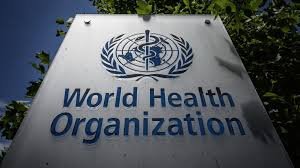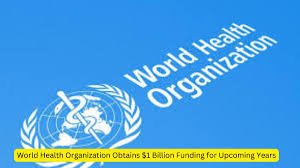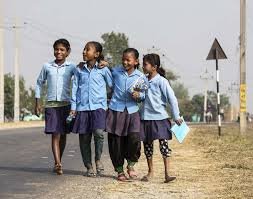WHO Secures $1 Billion Funding for Global Health Initiatives
In a significant development for global health, the World Health Organization (WHO) has successfully secured $1 billion in funding aimed at enhancing its health initiatives over the coming years. This funding, raised from various donor countries and organizations, will be pivotal in addressing pressing health challenges worldwide, including pandemics, vaccine distribution, and health system strengthening.
Purpose of the Funding
The funding will be strategically allocated to bolster WHO’s efforts in improving health systems, preparing for future health emergencies, and ensuring equitable access to essential health services globally. This initiative comes in the wake of the COVID-19 pandemic, which highlighted the necessity for robust health infrastructure and rapid response capabilities. By securing this funding, WHO aims to strengthen its role in global health governance and enhance collaboration among nations.
Focus Areas of Investment
The primary focus of the funding will include initiatives to combat infectious diseases, improve maternal and child health, and strengthen health systems in low- and middle-income countries. Additionally, a portion of the funding will be dedicated to research and development of vaccines and treatments for emerging health threats. This proactive approach aims to mitigate the impact of future pandemics and improve health outcomes for vulnerable populations.
Strengthening Global Health Security
WHO’s ability to mobilize resources effectively will be crucial in reinforcing global health security. The organization emphasizes the importance of international cooperation and solidarity in addressing health challenges that transcend borders. This funding will enable WHO to provide technical support and resources to countries in need, thereby fostering a more resilient global health framework.
Looking Ahead
With the secured funding, WHO is poised to make substantial strides in advancing global health initiatives. The organization is committed to promoting health equity, ensuring that everyone, regardless of their geographical location, has access to quality health services. This funding represents a crucial step towards achieving the Sustainable Development Goals (SDGs), particularly those related to health and well-being.

Why This News is Important
Strengthening Global Health Initiatives
The recent funding of $1 billion for WHO is crucial for strengthening global health initiatives. It enables the organization to address urgent health challenges that countries face, particularly in the wake of the COVID-19 pandemic. Such financial support is essential to enhance healthcare systems, which are often strained during health crises.
Promoting Health Equity
This funding plays a vital role in promoting health equity across different regions, especially in low- and middle-income countries. By ensuring access to essential health services, WHO can significantly reduce health disparities and improve overall health outcomes.
Preparing for Future Health Crises
With the increasing frequency of pandemics, the importance of this funding cannot be overstated. It equips WHO to develop and implement effective strategies to prepare for and respond to future health emergencies, thereby protecting global populations.
Facilitating Research and Development
A portion of the funding will be allocated to research and development, particularly for vaccines and treatments. This investment is critical in enhancing the global response to emerging health threats, ensuring that effective solutions are readily available.
Strengthening International Collaboration
The funding underscores the importance of international cooperation in tackling global health challenges. By supporting WHO’s initiatives, donor countries demonstrate their commitment to working together to enhance health security and improve health outcomes worldwide.
Historical Context
The World Health Organization (WHO) has been at the forefront of global health since its establishment in 1948. Over the decades, WHO has played a critical role in addressing health emergencies, including the eradication of smallpox and the global response to the HIV/AIDS epidemic. The organization’s funding structure has historically relied on voluntary contributions from member states and philanthropic organizations. In recent years, the need for substantial funding has grown, particularly highlighted by the COVID-19 pandemic, which exposed significant vulnerabilities in global health systems. This recent funding milestone reflects the international community’s recognition of the need for a robust and well-funded WHO to tackle future health crises effectively.
Key Takeaways from “WHO Secures $1 Billion Funding for Global Health Initiatives”
| S.No | Key Takeaway |
|---|---|
| 1 | WHO has secured $1 billion in funding for global health initiatives. |
| 2 | The funding will focus on improving health systems and pandemic preparedness. |
| 3 | Investment will also support research and development for vaccines and treatments. |
| 4 | This funding is crucial for promoting health equity in low- and middle-income countries. |
| 5 | The funding emphasizes the importance of international cooperation in global health. |
Important FAQs for Students from this News
1. What is the purpose of the $1 billion funding secured by WHO?
The funding is aimed at enhancing WHO’s global health initiatives, focusing on improving health systems, pandemic preparedness, and equitable access to health services, particularly in low- and middle-income countries.
2. How will this funding impact low- and middle-income countries?
The funding will help strengthen health systems in these countries, improve maternal and child health, and ensure access to essential health services, thereby promoting health equity.
3. What areas will the WHO prioritize with this funding?
WHO will prioritize combating infectious diseases, strengthening health systems, and investing in research and development for vaccines and treatments against emerging health threats.
4. Why is international cooperation important in global health?
International cooperation is essential for effectively addressing health challenges that cross borders, ensuring that resources and knowledge are shared to improve health outcomes globally.
5. How does this funding align with the Sustainable Development Goals (SDGs)?
This funding supports the achievement of various SDGs, particularly those related to health and well-being, by promoting equitable access to health services and strengthening health systems worldwide.
Some Important Current Affairs Links















